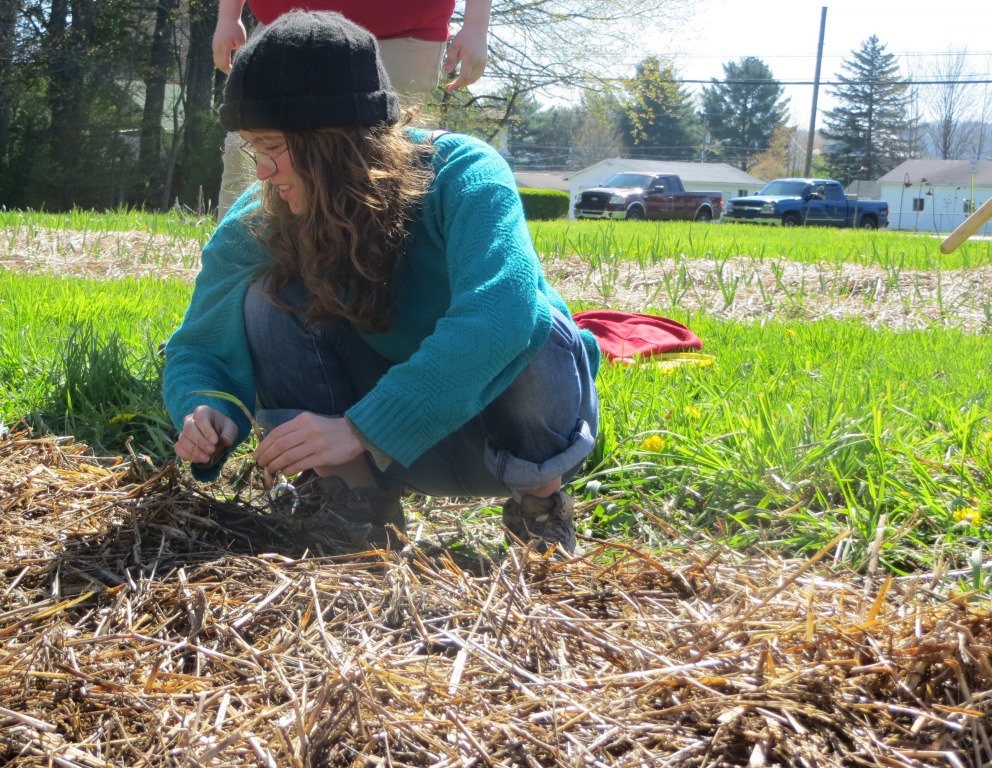–Alice Beecher, High Rocks, Hillsboro, WV One of my first memories of the garden back home is of scaring away the woodchuck my Dad was trying to attack with a wooden hammer. “The garden is for all of us!” I lectured him in my naïve five year old voice as he stormed off in indignation. I thought that that woodchuck deserved every bit of the summer squash and head lettuce he stole from us.
These days I may be a little more sketical of the woodchuck, but I hold true to the assertion that gardens should be grown to nourish all of us. Growing food is not only for the select few who have the privilege of ample space (and ample knowledge). My work with Grow Appalachia in various community gardens around Pocahontas County has proved to me that the task of growing things is as much about building relationships as it is about building compost bins.
When I was young, despite coming from a family of obsessive and prolific gardeners, I resented working the land because I couldn’t see the purpose beyond the plants. This past year working with Grow Appalachia has sparked in me a much deeper understanding of why all those days toiling under hot sun and tough soil are so essential, so necessary. Because not only do those days give us that extra food to put on our tables when times are tough and grocery stores scarce, they give us a collective project in which all hands and minds are valued. From the six year old girl who helped me plant some less-than straight rows of onions to the older West Virginians who have taught me what plants will best nourish each other, every time I garden here I seem to connect to someone who teaches me something new.
Every time I get a chance to work in the Pearl S. Buck garden in Hillsboro or the tiny plot outside of Marlinton Middle School I cherish and wait for these moments. Whether it’s a lesson about gathering and frying dandelions from sixth graders or a story about the folk-tales someone’s grandparents told them, I relish the space and time the garden gives us to grow and connect with each other. It’s a kind of collective nourishment we can all share in, regardless of expertise or ability, even if we don’t leave extra for the woodchucks.



Leave A Comment